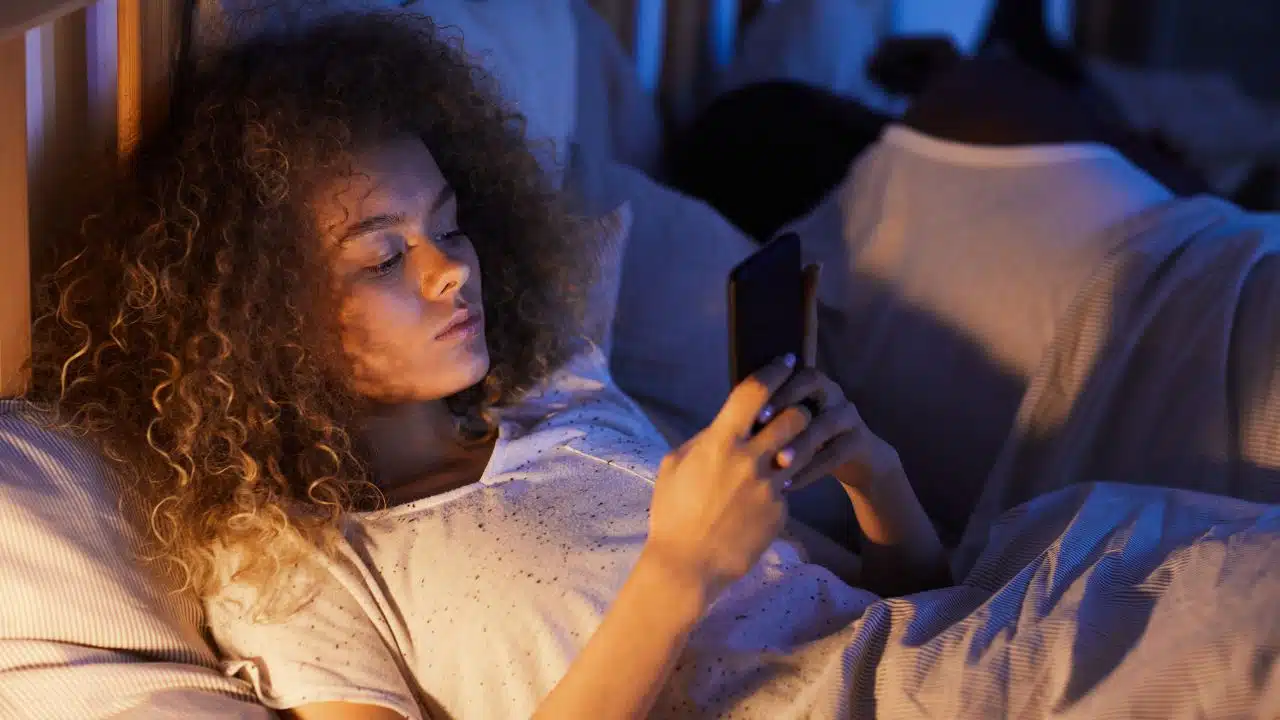The detox trend of today doesn’t stop at weight loss. Many, especially young people, are trying another popular detox that improves their health and mood—a digital detox.
A digital detox means less screen time. It helps us eliminate our phone addictions and gives us a break from the constant stream of notifications, social media updates, emails, and other digital distractions that often dominate our daily lives.
By unplugging from technology, we can reconnect with the present moment and the people around us, reduce stress and anxiety, improve our sleep quality, and boost our productivity and creativity. It gives us time to focus on the things that really matter.
Here’s how to implement your own “digital detox” for a better and more effective life!
1. Turn off notifications
New update notifications from social networks and emails that are constantly flashing on your screen will distract you. If you keep picking up your phone to check what’s going on, you won’t be able to fully devote yourself to what you need to get done.
So turn off your notifications or put your phone on silent or do not disturb. The updates will still be there when you are done with whatever it is you are working on and need a break.
2. Use paper to take notes
Instead of using your phone or laptop to save information and take notes in meetings or brainstorming sessions, use a good old-fashioned paper and pen. When you use technology, it is very easy to click on other tabs, and before you know it, you are reading the news, surfing social media, or “just checking your email real quick.”
3. Wear a watch
If you have a habit of checking the time with your phone, switch to wearing a watch. The less contact you have with your phone, the less likely you are to be tempted by YouTube, Amazon, or Candy Crush.
4. Focus on a social media detox

Facebook, Instagram, TikTok, and Twitter help us connect with friends, relatives, and a whole world full of useful information and interesting people. However, social networks also waste a lot of our time.
Learn to control yourself if you want to spend your time on other things. Schedule a fixed time of the day to check your accounts or set limits on your device, such as 30 minutes per day. This way, you are not missing out on what’s going on but aren’t spending too much time scrolling through the sites.
On another note, if someone regularly shares things that make you upset or cause negative emotions, stop following that person. You can’t control what other people post, but you have complete control over them showing up on your feeds.
5. No cell phones at the table
Phones should not be at your dining table, even if you just leave them there and do nothing. Our brain will subconsciously wait for the screen to light up, and we cannot focus on the conversation with the person or people we’re eating with. It makes us look very rude and impolite and can even ruin relationships.
Worse still, glancing at our phones also distracts us from eating. One study found that people ate more if they were using their phones at the same time. So, a digital detox can also help you manage your weight.
6. Don’t bring your phone to bed

We often have a habit of staring at our phones before going to sleep. But before you know it, it’s midnight, and you’ve spent the last hour or so mindlessly scrolling. The blue light from the screen will trick our brain into thinking it’s still daytime, which screws up your circadian rhythm or “body clock.” Good luck trying to get to sleep now!
If you use your phone as an alarm clock and keep it next to your bed, you should immediately break this habit. Buy yourself an alarm clock or leave your phone somewhere you can’t reach it from bed—this also forces you to get up to turn off the alarm and not hit the snooze button, improving your morning routine.
7. Hide your phone
Initially, if you find it difficult to leave your phone alone when doing things that require concentration, remove the temptation and put it in a drawer. If it’s out of sight, it’s easier to also be out of mind.
While resisting the urge to check your phone or other devices may be difficult at first, over time, you may find that you become more comfortable and focused without them. Constantly checking our phones and other devices can create a cycle of distraction and dependence, which can be difficult to break. The more we engage with digital technology, the more our brains become wired to seek out the stimulation and rewards that it provides, such as likes, comments, and notifications.
However, by consciously choosing to reduce our screen time and engage in other activities, we can rewire our brains to prioritize different kinds of rewards, such as the satisfaction of completing a task or the enjoyment of spending time with loved ones.
8. Participate in activities where you can’t hold your phone

Regularly practice sports or yoga, go to the gym, or sit in classes that require concentration and do not use phones. The more activities like this in your day, the less habitual phone use will be.
This is not only a digital detox method but can also prevent social and emotional issues. Spending too much time on social media or other digital platforms can contribute to feelings of isolation, anxiety, and depression. It can also interfere with face-to-face communication and social interactions, leading to a sense of disconnection from others.
Participating in a sport or activity with others gives you that social interaction you need.
It’s Time to Disconnect
While a digital detox can offer many benefits, it can also be challenging for those who are used to being connected to technology around the clock. It may take some effort and self-discipline to break the habit of constantly checking our devices and resisting the urge to pick them up during our detox period.
However, the rewards of a digital detox can be significant, helping us to find balance and regain control over our technology use.
With the tips above, we hope your detox helps you create a more balanced and fulfilling relationship with technology and enjoy the many benefits of a life lived offline.
Amanda Kay, the founder of My Life, I Guess, provides valuable career advice and support for anyone striving to make a living and, more importantly, make a life. Whether it's navigating job searches, learning new skills, overcoming unemployment, or dealing with debt, My Life, I Guess has been a go-to resource for career guidance and financial stability since 2013. Amanda's expertise and relatable approach have been featured in trusted publications such as MSN, Credit.com, Yahoo! Finance, the Ladders and Fairygodboss.
